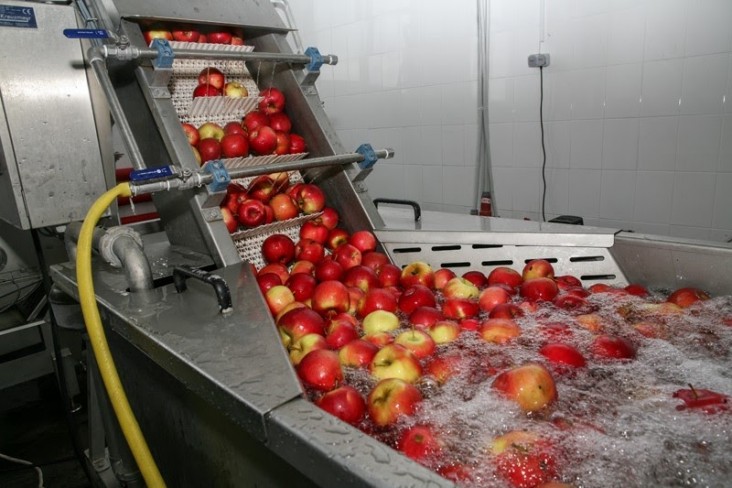Speeches Shim

ARDS co-investment assistance expands Ukraine’s agri-market reach and breaks Soviet-era economic tethers
Dark clouds can have silver linings. This is certainly true in today’s Ukraine. With the end of its heavy reliance on Russia as its largest agricultural market, new business opportunities are opening up in Europe and Asia. Forced to seek alternative markets, Ukraine’s farmers and agri-businesses, many of whom refuse to sell to Russia, undertook the process of improving product quality and obtaining certifications required by Europe and Asia.
Sergiy Ukrainets, the founder of the fruit and berry processor, Triada MK, is one of the frontrunners in the transition. In a remote village in Vinnytsia Oblast, Mr. Ukrainets founded Fruktona, a conglomerate of growing, processing, and freezing companies focused on increasing fruit and berry exports.
Thanks to a 2018 co-investment partnership with USAID’s Agriculture and Rural Development Support (ARDS) activity, Fruktona expanded to purchase apple peeling, cherry stone-extracting, calibrating, freezing, and cold storage equipment. This exponentially increased their processing capabilities, from just under 1,000 tons in 2017 to 2,100 tons in 2018, and 4,100 in 2019.
The additional production capacity allowed Triada to procure dramatically more fruits and vegetables from local farmers, and to double the price it paid them. This allowed Triada to expand its product line to include a variety of organic juices, frozen berries, and fruit cubes for candies and yogurt. To ensure a stable and quality supply, Fruktona began organizing USAID/ARDS-supported training opportunities for interested local farmers, sharing its experiences and the rationale behind its success.
“Before the conflict, everything was only sold to Russia, which never required quality products or certification,” says Mr. Ukrainets. “Once the war began, the most active producers moved quickly and got certified. Now they promote the importance of certification and quality standards to increase sales, and they train local farmers in the proper way to grow their products.”
Mr. Ukrainets keeps suppliers happy by distributing free fruit saplings and vegetable seeds, while also demonstrating the latest growing techniques and the economic benefits of global growing standards. One strategy he shares touts the benefits of freezing and storing berries until the season ends and prices rise.
“Nothing was grown according to European or Asian criteria. Few in Ukraine considered processing, making juice, or freezing fruit to add value. We showed the profitability of storing and processing fruit and berries for use in different end products. The expectation of guaranteed work and a market for their products allows farmers to stay in Ukraine instead of working abroad,” says Mr. Ukrainets.
To further align its products with European standards, Triada also participated in a USAID/ARDS co-financed pilot project that introduced climate-smart technology, including harvest control and a field-to-table tracking system. The technology can analyze field collection, storage transfer, temperature tracking, delivery and freezing time monitoring, and employee productivity data. This data improves pest control and product quality, which has opened doors to major retail chains and domestic and international markets.
Today, Triada’s virtually pesticide-free frozen apple and pumpkin cube exports are in high demand by European companies for use in baby food and candies, providing livelihoods for 65 poverty-line Ukrainian rural family farms.
“None of this would have been possible without the support of USAID,” explains Mr. Ukrainets. “We are creating a sustainable supply chain, not just reselling fruits. And we continue to successfully demonstrate the advantage this brings to all the other fruit growers in the region.”

Comment
Make a general inquiry or suggest an improvement.